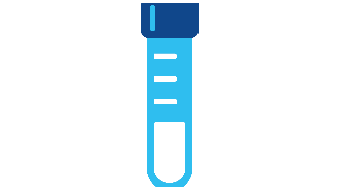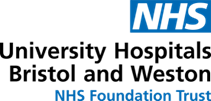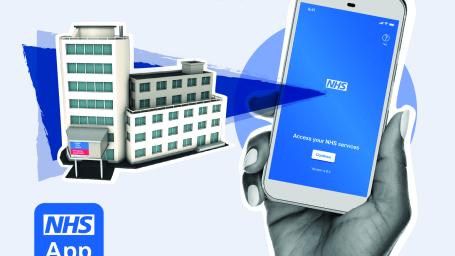What is changing?
We’re introducing online letters for appointments at North Bristol NHS Trust this autumn. This means when you’re given an appointment at our hospitals, you’ll receive a text message or email with a secure link to view your appointment letter online instantly.
If you haven’t given us a mobile phone number or email address, you’ll continue to receive paper letters.
Why are online letters for appointments being introduced?
We know how important it is that you receive details about your visit to hospital quickly and easily.
By giving you the option to view your appointment letters online, you can access your appointment information sooner on your smartphone, tablet or computer, even if you’re away from home.
If you’re able to view your appointment letters online, this helps our trust reduce the cost and environmental impact of posting paper letters.
When are online letters for appointments being introduced?
Patients will be able to begin viewing their appointment letters online for vascular, dietetics, respiratory physiology and pain management clinics in October. This option will be made available for clinics in more services in the near future.
I want to continue receiving paper letters, is this possible?
Yes, paper letters will still be available for patients who prefer to receive their appointment letter by post, and for those who haven’t given us a mobile phone number or email address.
You can tell us if you want to receive paper letters for your appointment by:
- Replying with ‘PRINT’ to any text messages about your appointment. This will update your letter preferences so that you will receive paper letters for future appointments.
- Managing your contact preferences in our online portal. To do this, login at nhs.my/nbt, go to the 'Settings' tab in the top right-hand corner. Under ‘Letter Settings’ change the option ‘View your appointment letters online?’ to ‘No’.
What happens if I don’t view my appointment letter online?
We want to ensure that all patients receive the information they need to attend their appointment. If you don’t view your appointment letter online, we will automatically send you a paper letter.
Does this affect all letters I receive from North Bristol NHS Trust?
No. Currently, we are only introducing online letters for when you’re given an appointment. Other letters about your care will continue to be posted to you.
I’m having difficulty viewing my appointment letter online, what should I do?
Please be reassured that if you don’t view your appointment letter online, we will automatically send you a paper letter.
You can also contact North Bristol NHS Trust on 0300 555 0103 to request a paper copy of your letter.
I’ve received a text message with a link to my appointment letter, but I don’t have a smartphone or regular access to the internet. What should I do?
If you don’t have a smartphone, but you want to view your appointment letter online, you can do this on another device which has an internet browser, for example a computer or tablet. To do this:
- Go to the web address nhs.my/nbt and login with your personal information.
- You will be asked to verify your mobile phone number and enter a code which will be sent by text message to your phone.
- Once logged-in, click ‘Letters’ and select ‘View Letter’ for the letter you want to open.
- Your letter will automatically download so that you can open and view it.
- You may be asked if you want to update your letter preferences to view your appointment letters online in future if you’d prefer.
If you want to receive paper letters instead of viewing your appointment letter online, you can reply to text messages from North Bristol NHS Trust with ‘PRINT’ to update your letter preferences for future appointments.
We will automatically send you a paper letter if you don’t view your appointment letter online.
I’ve given you a temporary address, which postcode should I log-in with to view my letter online?
Please use the postcode from your temporary address to log-in and access your letter.
I’m a carer, can I access appointment letters for the person I care for online?
Yes, if you’ve arranged for your contact information to be added for the person you care for, you will be contacted when an appointment letter for them is available to view online. You should log-in to view the letter with the patient’s information.
I want to receive paper appointment letters, but still receive appointment reminders by text message or email, is this possible?
Yes, you can opt out of viewing your appointment letters online but this will not affect you receiving reminders for your appointment by text message or email. There is a separate opt-out process to stop receiving appointment reminders.










